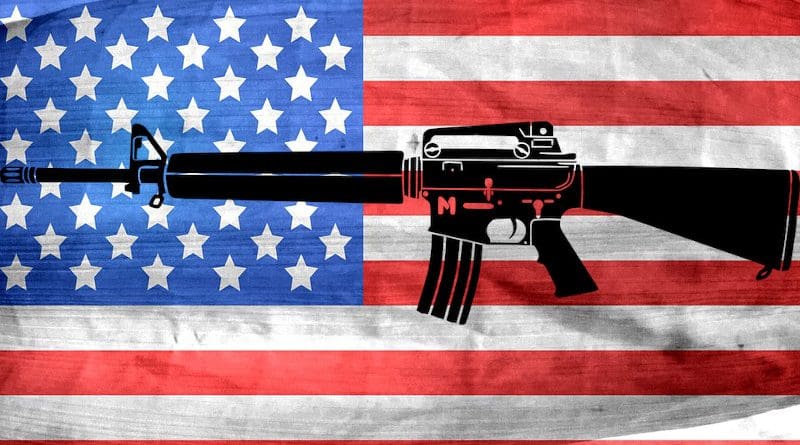Happy Anniversary: Ten Years Of The US Security State – OpEd
Gore Vidal was sharp enough to remind us that President Harry Truman gave the United States the National Security State in response to Cold War fears against the Red Satan. It came with Republican gift wrapping and Michigan Senator Arthur Vandenberg’s blessing: ‘scare the hell out of the American people’, he urged Truman, and their hearts and minds would follow. He had to – Americans were puzzled why a communist presence in either Turkey or Greece would have mattered to anybody else except Turks and Greeks. The dour haberdasher from Missouri complied. The National Security Act of 1947 came into being.
Historical realists such as the late historian Norman Graebner and Vidal were on similar ground – the United States was getting into a muddle over nothing, misreading the signals of an exaggerated power and getting itchy on the trigger. An entire apparatus, filled with weapons, surveillance, and paranoia, was readied for Armageddon.
After the end of the Cold War, the neoconservative prophets huddled in search of a new enemy. How do you find foes in an environment where the motor of history has remarkably stopped? That somewhat idiotic observation by Francis Fukuyama, nestling in the summer issue of The National Interest in 1989, was short lived. Al Qaida and other members of the fundamentalist creed were not having a bar of it. What the Bush administration proceeded to do was confuse a spectacular attack with the idea of a spectacular enemy. Exceptional enemies required, in turn, exceptional treatment: the use of torture and rendition; the exclusion of the Geneva Conventions, the establishment of special death-wielding military commissions.
One of the vicious offspring of this approach was the Patriot Act. As the ACLU pointed out (Dec 10, 2010), the Patriot Act was manna from heaven to law enforcement agencies who had felt cramped by a Congress overly keen to enforce civil liberties. Before the wishes of a rampant executive, debate ceased. Hearings were few.
The result, as the ACLU notes, is that the government now peers into the records on an individual’s activity held by third parties (section 215); conducts clandestine searches of private property without notice to the owner (section 213); initiates intelligence searches under the narrow exception to the Fourth Amendment (section 218) and undertakes ‘trap and trace’ searches where ‘addressing’ information is collected (section 214).
After 10 years, the infrastructure set up to fight ‘terror’ is stubbornly in place, a clay footed monster in pursuit of a phantom. The Obama administration has not closed Guantánamo, and legal exceptionality remains an invidious category that is invoked in the name of security. Bin Laden may well have been slain, but his death was almost as useful to US security as an anti-globalisation protester’s bomb in a Starbucks branch. The halt and the blind in Washington remain committed to fighting a war they cannot define, for aims they do not know. NATO is seeking a role it was never meant for, and its compliant Secretary General Andrews Fogh Rasmussen is all too keen to take some of the responsibilities of global policing off Uncle Sam’s broad and weary shoulders.
The national security state that succeeded Truman’s gift to the United States has been so pervasive it has even stirred the pot of conspiracy, both in the US and globally. In such a hot house of speculation, the synapses rarely meet. In France, Thierry Meyssan rushed to the publishers with L’Effroyable imposture, translated as 9/11: The Big Lie, and sold 200 thousand copies in a year. Conspiracy titillates – Oscar winning French actress Marion Cotillard more than flirted with the idea herself. In Germany Andreas von Bülow, formally a cabinet minister and member of the Social Democrats, scribbled on the pathological desires of the US security establishment to plot 9/11 from within. His Die CIA und der 11.September (The CIA and September 11), has sold tens of thousands of copies.
In the case of the world ten years after September 11, 2011, a state even more repressive, intrusive and paranoid has come into being. Security measures at airports are mere placebos designed to pacify and reassure. As the authority on computer security Bruce Schneier observed last year (NYT, Nov 23, 2010), ‘We screen for guns and bombs, so the terrorists use box cutters. We confiscate box cutters and corkscrews, so they put explosives in their sneakers. We screen footwear, so they try to use liquids.’ This, as Schneier aptly calls it, isn’t so much security as security theatre.
Fear is a currency valued and weighed by policy makers. Hope is merely treated as a deluding aspiration. The security state, by definition, does not live on the air of optimism, let alone reality. It feeds on contingencies and hypothetical scenarios: ‘What if this attack was to happen here?’ There is nothing more tragic than seeing a rough policy implemented against the unknowable.
On this anniversary, the political and intellectual left is fractured and emasculated, with many obsessed with backing neo-conservative causes of ‘democratisation’ and humanitarian meddling. The right remains trapped in fantasies of empire, fearful that the United States might lose its hold as the premier brute of world politics should its misdirected sword be sheathed. They need not worry – that bully is not bound to go into an early retirement.
There will always be room to commemorate. Human beings not only revere the death instinct but those who have perished. But the legacy, forced and hoisted as it has been courtesy of American power, has had an all too real affect on the lives of untold millions. And there are few signs yet of a withering away of the Security State. The one thing that has frayed spectacularly is the Republic itself.

